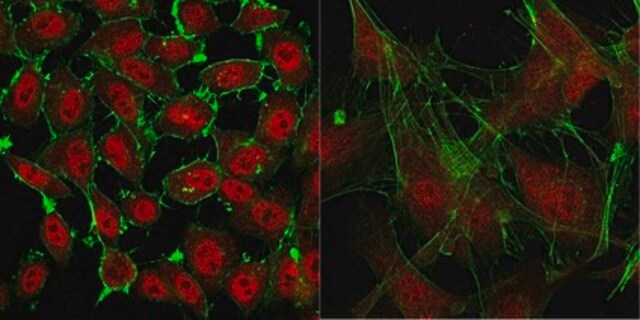SAB5500001
Anti-beta-Actin antibody, Rabbit monoclonal
clone SP124, recombinant, expressed in proprietary host, affinity isolated antibody
About This Item
Empfohlene Produkte
Biologische Quelle
rabbit
Qualitätsniveau
Rekombinant
expressed in proprietary host
Konjugat
unconjugated
Antikörperform
affinity isolated antibody
Antikörper-Produkttyp
primary antibodies
Klon
SP124, monoclonal
Speziesreaktivität
human (tested)
Speziesreaktivität (Voraussage durch Homologie)
chicken, mouse, rat, bovine, rabbit, pig, dog, hamster, frog
Methode(n)
flow cytometry: 1:100
immunoblotting: 1:200
immunohistochemistry: 1:200
Isotyp
IgG
UniProt-Hinterlegungsnummer
Versandbedingung
wet ice
Lagertemp.
2-8°C
Posttranslationale Modifikation Target
unmodified
Angaben zum Gen
human ... ACTB(60)
Verwandte Kategorien
Allgemeine Beschreibung
Immunogen
Anwendung
Biochem./physiol. Wirkung
Leistungsmerkmale und Vorteile
Physikalische Form
Haftungsausschluss
Not finding the right product?
Try our Produkt-Auswahlhilfe.
Lagerklassenschlüssel
12 - Non Combustible Liquids
WGK
WGK 2
Flammpunkt (°F)
Not applicable
Flammpunkt (°C)
Not applicable
Analysenzertifikate (COA)
Suchen Sie nach Analysenzertifikate (COA), indem Sie die Lot-/Chargennummer des Produkts eingeben. Lot- und Chargennummern sind auf dem Produktetikett hinter den Wörtern ‘Lot’ oder ‘Batch’ (Lot oder Charge) zu finden.
Besitzen Sie dieses Produkt bereits?
In der Dokumentenbibliothek finden Sie die Dokumentation zu den Produkten, die Sie kürzlich erworben haben.
Kunden haben sich ebenfalls angesehen
Unser Team von Wissenschaftlern verfügt über Erfahrung in allen Forschungsbereichen einschließlich Life Science, Materialwissenschaften, chemischer Synthese, Chromatographie, Analytik und vielen mehr..
Setzen Sie sich mit dem technischen Dienst in Verbindung.












